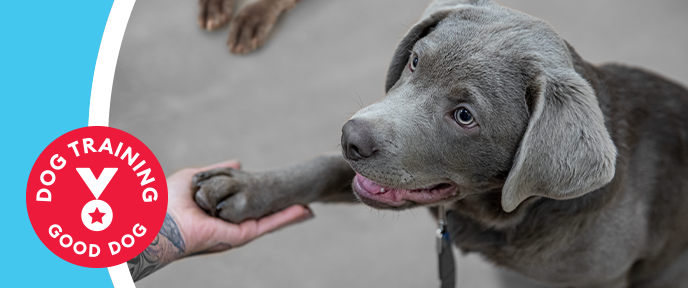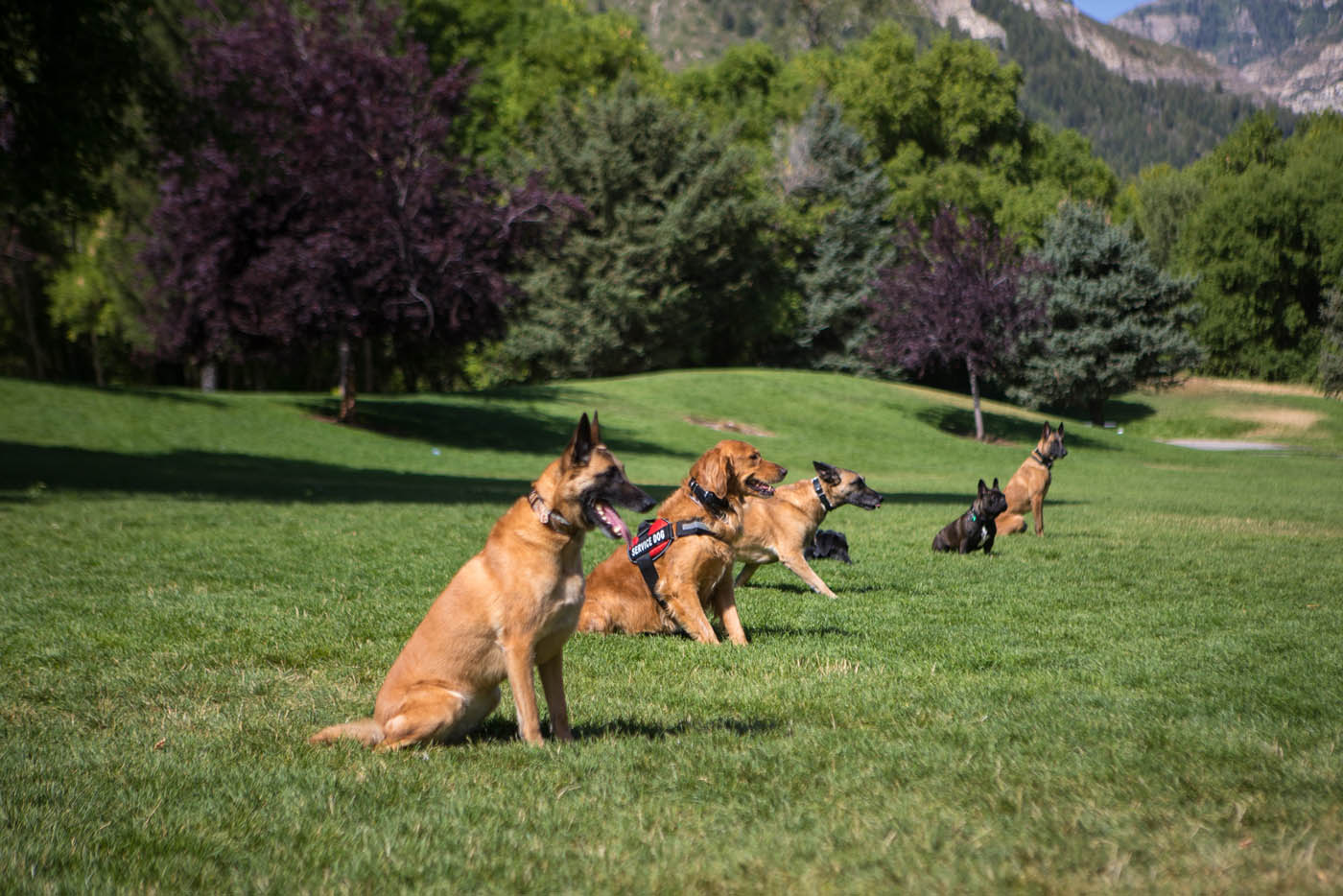Important Tips and Techniques for Learning Canine Training in your home
Understanding pet training in the house needs a critical method. Positivity, uniformity, and patience are vital elements. Developing a routine aids develop a feeling of safety for the pet dog. Using positive support constructs depend on and communication. However, lots of proprietors struggle with preserving rate of interest and involvement during training sessions. Understanding just how to navigate these challenges can result in a lot more efficient training results. What approaches could be most useful in getting rid of these usual obstacles?
Establish a Constant Routine
When training a canine, establishing a consistent routine is vital for promoting etiquette and a solid bond between the proprietor and animal. An organized routine gives pets with a complacency, aiding them understand what to anticipate daily. Routine feeding times, exercise, and training sessions produce a foreseeable setting, which can minimize stress and anxiety and promote a feeling of stability.
Owners need to intend to integrate daily tasks at the very same time to strengthen this routine. Morning walks, play, and training workouts ought to take place constantly. In addition, integrating commands and cues throughout these activities can further improve knowing.
Usage Positive Support
A regular routine prepares for reliable training, however the approaches utilized during training sessions substantially influence a pet's knowing experience. Favorable reinforcement emerges as an effective tool in forming wanted behaviors. This method involves awarding a pet for exhibiting certain activities, properly motivating them to duplicate those actions (Dog Training Near Me). Rewards can consist of treats, appreciation, or play, creating a positive organization with the activity done
Making use of positive support cultivates a bond of trust in between the pet and trainer, enhancing interaction and understanding. It is important to deliver benefits quickly after the desired habits to strengthen the link. Consistency in using this strategy ensures the pet can plainly link the actions with the reward. Avoiding punishment or adverse support can lead to an extra certain and passionate student. By concentrating on favorable support, instructors can develop a supportive atmosphere where canines flourish and discover efficiently.
Keep Training Sessions Short and Fun
Efficient canine training requires maintaining sessions interesting and short to maintain the pet's attention and enthusiasm. Generally, sessions should last no more than 10 to 15 mins, as canines have restricted interest spans. By concentrating on short periods, instructors can stop stress for both the pet dog and the handler, boosting the discovering experience.
Incorporating play and favorable interactions into training can make sessions enjoyable. Making use of toys, deals with, or praise as rewards not only encourages the pet dog but additionally enhances the bond between the pet dog and instructor. Transforming tasks regularly can likewise help keep the pet dog's interest to life, as varied tasks boost psychological engagement.
Finishing each session on a positive note, such as celebrating a little triumph, guarantees the pet dog associates training with fun. Inevitably, keeping training sessions short and delightful advertises effective discovering and reinforces the overall training process.
Establish Realistic Goals
Establishing realistic goals is essential for successful pet training. Fitness instructors must start by evaluating their canine's behavioral propensities and existing abilities, permitting them to develop achievable purposes. Rather than aiming for complex commands, beginning with basic hints like "rest" or "stay" can promote a sense of accomplishment.
Additionally, damaging down larger objectives right into smaller sized, convenient actions helps keep motivation for both the canine and the fitness instructor. This method also allows for adjustments along the road, ensuring that challenges do not come to be overwhelming.
It is essential to recognize that each pet discovers at its very own speed; persistence is essential. Maintaining expectations based assists avoid stress and motivates consistent progression. Dog Training Near Me. In conclusion, setting realistic objectives not only boosts the training experience however additionally enhances the bond between the pet and the fitness instructor, leading to a much more unified and reliable training journey
Socialize Your Canine
Achieving practical training objectives lays the groundwork for a well-rounded pet dog, but socialization plays a substantial role in a pet dog's development. Mingling a canine includes revealing it to various atmospheres, individuals, and various other animals, which aids to build confidence and decrease anxiousness. Early socializing, ideally between three and fourteen weeks old, is vital for forming a pet's behavior and temperament. This exposure enables pets to learn suitable interactions and establish crucial social abilities.
Proprietors need to present their dogs to different situations slowly, making certain each experience is favorable and rewarding. Going to parks, participating in pup classes, or organizing playdates with other canines can assist in these interactions. Additionally, learning and observing other pet dogs from their habits can even more improve a canine's social skills. Eventually, positive and regular socializing promotes a well-adjusted pet that pleasantly navigates numerous social setups throughout its life.
Be Individual and Consistent

Additionally, perseverance is important. Routine method strengthens actions and commands, guaranteeing that the canine maintains what has actually been learned. It is necessary to celebrate little triumphes, as they encourage both the owner and the dog to maintain proceeding. Recognizing obstacles as component of the trip rather than Recommended Reading failings can assist maintain inspiration. Eventually, a client and relentless method not just constructs a stronger bond in between canine and proprietor but additionally lays the structure for reliable training and enduring obedience.

Incorporate Training Into Day-to-day Live
Incorporating training into day-to-day life can boost a dog's knowing experience. Regular activities, such as feeding or walking, existing useful opportunities for positive reinforcement. By flawlessly mixing training with day-to-day activities, owners can cultivate much better behavior in their pet dogs gradually.
Daily Routine Integration
Exactly how can dog owners effortlessly mix training right into their daily regimens? By incorporating training sessions right into everyday activities, proprietors can improve their pet's discovering experience. For circumstances, simple commands can be practiced during walks, such as "sit" before crossing streets or "heel" while steering through parks. Feeding time offers another opportunity; owners can incorporate commands like "wait" or "leave it" before presenting the food dish. Furthermore, play can work as a training ground for commands like "fetch" or "drop it." Uniformity is essential; by installing training right into routine activities, pets discover that commands are pertinent in various contexts. This method not only enhances discovering however additionally reinforces the bond between the dog and its owner.
Favorable Support Opportunities
Training possibilities are plentiful throughout a dog's day-to-day live, especially when integrated with positive reinforcement methods. Everyday tasks give moments for training, such as throughout walks, feeding times, or play sessions. Rewarding a pet for resting prior to receiving food improves obedience while promoting a positive association with commands. Applauding a pet for smoothly greeting visitors enhances preferable behavior. Including training right into playtime, like making use of fetch to practice commands, can likewise work. Proprietors ought to continue to be constant, making use of treats, appreciation, or playthings as benefits to urge excellent actions. By integrating training flawlessly into everyday regimens, proprietors can grow a mannerly canine while reinforcing their bond, making the training procedure pleasurable for both celebrations.
Often Asked Concerns
What Age Is Ideal to Start Training My Pet Dog?
Identifying the finest age to begin educating a pet dog differs; nonetheless, experts commonly suggest starting around 8 weeks. Early training fosters socialization, establishes routines, and helps form favorable actions, advertising a well-adjusted, loyal companion.
How Can I Stop My Pet Dog From Barking Exceedingly?
To lower too much barking, one reliable approach entails determining triggers, supplying constant training commands, and Continue satisfying silent habits. In addition, routine workout and psychological excitement can assist lessen unneeded barking by attending to dullness or these details stress and anxiety.
What Should I Do if My Canine Ends Up Being Aggressive?
When a canine displays aggressiveness, it is vital to continue to be tranquil and avoid conflict. Identifying triggers, seeking specialist help, and using favorable reinforcement techniques can efficiently handle and minimize aggressive habits in pet dogs.
How Do I Choose the Right Training Devices?
Selecting the best training tools entails examining the canine's training, dimension, and character goals. Research study various options, speak with professionals, and prioritize humane, reliable tools that advertise favorable reinforcement for an effective training experience.

Can I Train My Pet Without Specialist Assistance?
Educating a pet dog without expert help is feasible for several owners. With dedication, perseverance, and consistent technique, individuals can efficiently teach standard commands and reinforce favorable habits, fostering a solid bond between them and their pet dog.
A constant regular lays the groundwork for reliable training, however the approaches utilized during training sessions significantly influence a pet's knowing experience. Effective pet dog training requires maintaining sessions appealing and brief to preserve the dog's interest and excitement. Accomplishing reasonable training objectives lays the groundwork for a well-shaped canine, yet socialization plays a substantial function in a pet's advancement. In addition, observing other pets and learning from their actions can further improve a pet's social abilities. Selecting the ideal training tools includes reviewing the dog's training, personality, and dimension objectives.